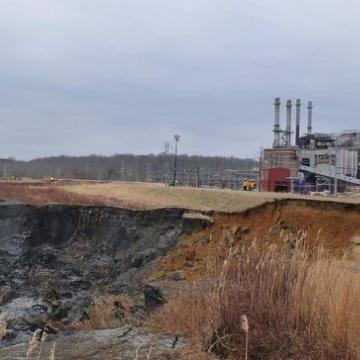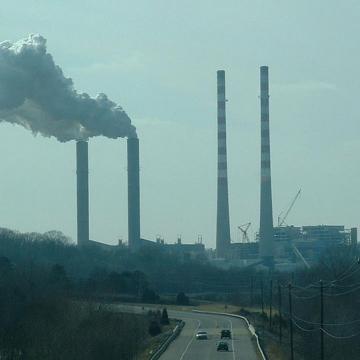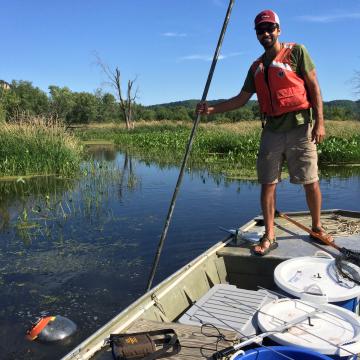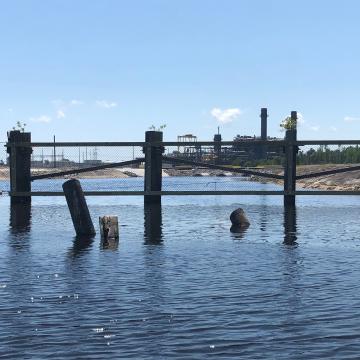-
NewsReforestation has been shown to cool surface temperatures, and a novel study suggests it may also reduce air temperature up to several stories above the ground.
-
NewsContaminants that occur together naturally in groundwater under certain geological conditions may heighten health risks for millions of North Carolinians whose drinking water comes from private wells, and current safety regulations don’t address the problem, a new Duke University study finds.
-
NewsScientists have devised a simple new model that explains how the undesirable effects of urban heat islands vary across seasons. Their results could help cities in different climatic regions design heat mitigation strategies.
-
NewsSpeakers from government, nonprofits, corporations and academia will explore how water issues – especially growing concerns about water quality and water availability – impact the world.
-
NewsResearch by Duke and NC State scientists finds most filters are only partially effective at removing PFAS. A few, if not properly maintained, can even make the situation worse.
-
NewsA team of students from the Nicholas School of the Environment and Pratt School of Engineering has been working for more than a year to create a single digital map of the service boundaries of North Carolina’s drinking water systems.
-
NewsA new study which combines measurements from nearly 1,400 drinking water wells across North Carolina estimates that more than half of the wells in the state’s central region contain levels of cancer-causing hexavalent chromium in excess of state safety standards.
-
NewsThe ongoing transition from coal to natural gas and renewables in the U.S. electricity sector is dramatically reducing the industry’s water use, a new Duke University study finds.
-
NewsWith the Environmental Protection Agency (EPA) poised to loosen coal ash rules for dry onsite storage and large fill projects, a new study from Duke University finds that leaving those contaminants exposed may significantly heighten the risk of toxic contamination to nearby soil and waterways.
-
NewsReducing fossil fuel emissions steadily over coming years will prevent millions of premature deaths and help avoid the worst of climate change without causing the large spike in short-term warming that some studies have predicted, new analysis by researchers at Duke University and the University of Leeds finds.
-
NewsJunfeng “Jim” Zhang, professor of global and environmental health at Duke University, has received a $2 million grant to lead a four-year study on the effects of early-life and prenatal exposure to air pollution on birth weight and growth. These are two important predictors of childhood obesity.
-
NewsOrganisms floating in currents beneath a river’s surface are exposed to far less sunlight than scientists previously believed, and the light that does reach them is mostly sporadic and short-lived, a new Duke University-led study shows.
-
NewsCoal ash solids found in sediments collected from Sutton Lake in 2015 and 2018 suggest the eastern North Carolina lake has been contaminated by multiple coal ash spills, most of them apparently unmonitored and unreported until now.













